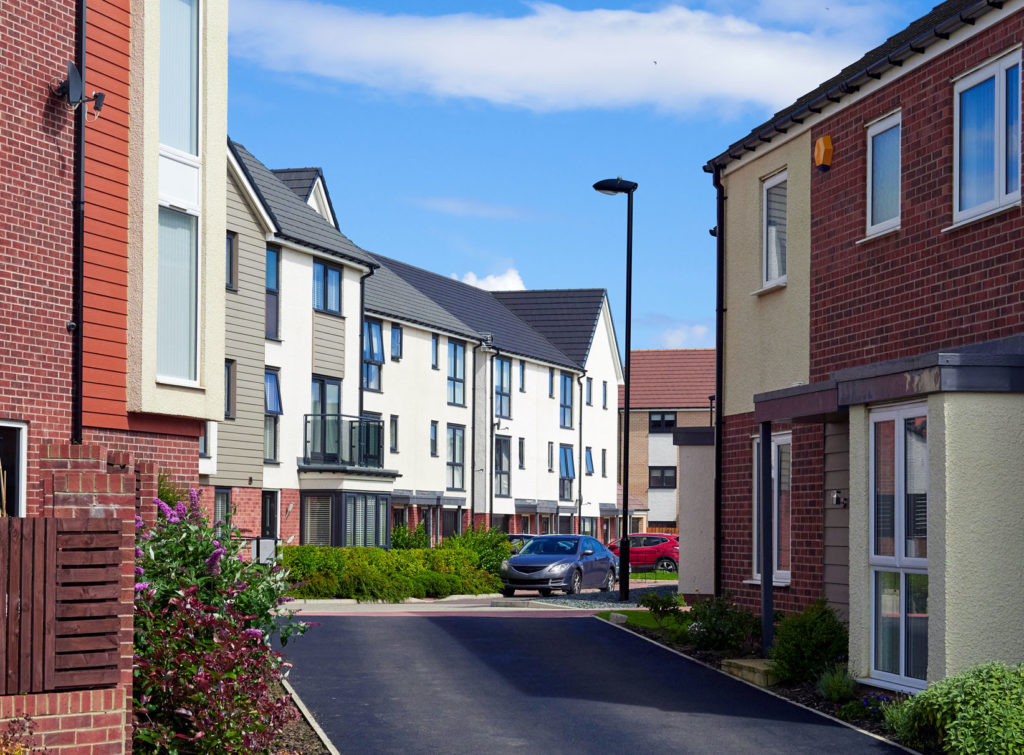Chancellor Rishi Sunak’s Budget included details of the UK’s first infrastructure bank, a mortgage guarantee scheme, a Levelling Up Fund and over £1bn for 45 new town deals, plus various other measures aimed at revitalising the economy. LABM garners opinion from across the sector.
There’s no denying the devastating impact the pandemic has had on the lives of people across the UK and the economy. In 2020, the economy shrank by 10%, however the Chancellor said during his speech that it is expected to rebound this year with a predicted annual growth of 4% and return to pre-COVID levels by mid 2022.
Cllr James Jamieson, Chairman of the Local Government Association, says: “Tackling the economic challenges ahead is a huge task. It is councils who know their local areas best and must be able to lead efforts to rebuild and level up our economy, get people back into work and create new hope for communities.
“It is good that councils have been placed at the heart of the delivery of new funds such as the Levelling Up Fund and Community Renewal Fund. We look forward to working with Government on the detail but are concerned by the prospect of competitive bidding processes at a time when councils want to be fully focused on protecting communities and businesses from the impact of the pandemic.”
Since the onset of the pandemic, approximately 700,000 people have lost their jobs. Next year unemployment levels are forecasted to peak at 6.5%, which is much less than previously predicted. Ahead of the Budget there was much speculation about the Government’s furlough scheme. In his announcement, the Chancellor extended the scheme and support for the self-employed until the end of September, saying 600,000 more self-employed people will be able to access grants.
The LGA’s Cllr James Jamieson says: “The COVID-19 pandemic could lead to the number of long-term unemployed people across England reaching 1.2 million. The furlough scheme has been vital in securing jobs that may have otherwise been lost so it is important that it has been extended. It will be crucial to ensure people seeking to re-enter the labour market get the local support, advice and training they need to face the future. Councils stand ready to work in partnership with the Government at the earliest stage to shape new and re-design existing Plan for Jobs initiatives, so they are effective and connected on the ground to ensure no community is left behind.”

Housing
The Chancellor pledged over £1bn for 45 new town deals to promote regeneration in places from ‘Castleford to Clay Cross, Rochdale to Rowley Regis and Whitby to Wolverhampton’, extended the stamp duty holiday and also set out plans for a new mortgage guarantee scheme.
Given the ongoing housing crisis and the increasing numbers of people who have fallen into hardship during the pandemic, struggling to keep a roof over their heads and food on the table, it’s disappointing that social housing was notably absent from the Budget.
Leader of the opposition Sir Kier Starmer said: “If the Government was serious about fixing the broken housing market, it would have announced a new generation of genuinely affordable council houses. Instead 230,000 council homes have been lost since 2010, yet the Chancellor focused on returning to subsidising 95% of mortgages.”
Nicholas Harris, Chief Executive at housing association, Stonewater, says the guarantee scheme is positive news for first-time buyers: “A government backed mortgage guarantee scheme will help first-time buyers get on the housing ladder at a time when for many owning a home seems an impossible dream. Alongside the extension of the stamp duty holiday, this new scheme will go some way towards addressing the size of deposits currently required, which is beyond the means of many prospective homebuyers.”
Both the stamp duty extension and mortgage guarantee scheme will be welcomed by many, says Mark Perry, Chief Executive of VIVID, “but what we really need in this country is increased funding to support the building of more affordable housing. The supply of truly affordable housing, including social rented housing, is more important than ever given the difficult financial circumstances many more people now find themselves in and there remains a critical shortage.”
Missed opportunity?
James Prestwich, Director of Policy and External Affairs at the Chartered Institute of Housing, says the Budget “provided an opportunity for government to set out how it hopes to rebuild the country following the COVID-19 pandemic. Few would understate the scale of the challenge facing government and with many sectors of the economy hit particularly hard by coronavirus, we weren’t expecting this to be a ‘housing budget’. That said, we would have liked to have seen a much greater focus on a housing-led recovery, which we believe represents the best way for government to drive growth, help meet its ambitious climate change targets, create highly skilled jobs and alleviate the chronic housing shortage.”
“This budget is an important step in helping the country get back on its feet, as we navigate our recovery from the pandemic,” said Kate Henderson, Chief Executive of the National Housing Federation. “The announcement of a new MMC taskforce is positive, as well as the focus on helping people get onto the housing ladder. We must not forget for those on the lowest incomes who cannot afford to buy their own home, building more social housing in the coming years will also be crucial to recovery.”
UK infrastructure bank
Chancellor Rishi Sunak also announced the creation of the first ever UK infrastructure bank which will be set up in Leeds with an initial capital of £12bn, with the aim of funding £40bn worth of public and private projects.
John Connor, Leeds-based Partner at law firm Womble Bond Dickinson, commented: “This important development builds on last month’s news that the Government would be committing £10m investment to Leeds to make it the UK’s green finance capital. The core objectives of the Bank will be to help tackle climate change, and support regional and local economic growth. This is very positive news for the country as a whole, and I expect to see the Bank in due course providing funding to unlock projects that might not otherwise be fully funded by the private sector, and making a meaningful contribution to support new clean energy, transport, digital, water and waste projects across the UK.”
Whilst the CIH’s James Prestwich asserted: “The £12bn for a UK infrastructure bank will be valuable, although this doesn’t address the vital action required to upgrade the energy-efficiency of Britain’s housing stock and help tackle the climate emergency. Investment for housing has been focused on helping people into home ownership with a guarantee for 95% mortgages that will be welcome for those able to afford that option, but will not assist the many households unable to make the step into homeownership or those living in the rented sector.”

Greener economy
The Chancellor announced eight new freeport locations to fund the next innovation in offshore wind, these include Teesside and the Humber.
On the focus on building a greener economy, Stonewater’s Nicholas Harris commented: “We are 100% behind the ambition to build a more sustainable, green UK economy as we recover from the pandemic and work towards the net zero-carbon target by 2050.
“Stonewater has already been working hard on what this means for our customers and our homes. Ending fuel poverty in the UK can only be achieved by tackling the root causes of poverty and improving the energy efficiency of homes. Our report ‘All hands to the pump: a home improvement plan for England’ that we commissioned from the IPPR last summer sets out our thinking and the technologies that can support this. Heat pumps are a key part of this and we look forward to the upcoming announcement
“We have also calculated that getting to EPC B for all our homes will cost £250m and covers more than 25,500 homes. We will fund as much of this ourselves as we can, but we will need government support if we are to achieve the 2050 target.
“Additional funding, whether that’s in the form of tax relief or grants, for home retrofitting must be a key part of the fight against fuel poverty. It would help improve lives and create long-term jobs across the entire country — a huge win-win.”
Green growth
Julie Hirigoyen, Chief Executive at UKGBC said: “The Chancellor insisted that this country needs a real commitment to green growth and to create jobs where people are. However, ‘build back business as usual’ would be a more fitting description for the Government’s plans to build back better.
“We are still none the wiser about the fate of the Green Homes Grant scheme, which just a few short months ago the Chancellor told us would support over 100,000 jobs in green construction up and down the country. UKGBC, together with many others in our industry, have strongly advocated that the £1.4bn of unspent funding be rolled over to 2021/22, but the Budget leaves both industry and householders still in the dark.
“Beyond the opportunities for green investment offered by the Infrastructure Bank and new green gilt and retail savings product, this Budget appears to ignore the huge part that greening our buildings can play in delivering our post-COVID economic recovery. Tackling carbon emissions from buildings — particularly the existing housing stock — is not easy, but we cannot afford to duck the challenge any longer.
“The Chancellor’s emphasis on local growth is also welcome, as we recognise that local authorities have a vital role to play in seizing local green growth opportunities. However, local authorities alone cannot deliver the change we need without central government leading from the front. The Chancellor’s ‘investment-led’ green recovery should not ignore the voice of the industry calling for a national retrofit strategy to unlock vital green jobs across the whole country.”

Universal Credit
The Chancellor also extended the £20 weekly uplift in Universal Credit until September. The NHF’s Kate Henderson said: “Housing associations see every day how the Universal Credit uplift provides much needed relief for those living on the lowest incomes — so its short-term extension is welcome. This extra £20 a week helps families buy enough food to feed themselves and pay their rent. That said, we are concerned that families and children will face the same risk of financial hardship in six months’ time, when the effects of the crisis will still be felt.”
Kate continued: “It’s good to see the Government bring forward exemptions to the shared accommodation rate, ensuring independent living is more affordable for people under 25 who have experienced homelessness and care leavers. This will also help people to move on from emergency accommodation more easily.”
VIVID’s Mark Perry also welcomed the Government’s Universal Credit uplift extension, saying: “Amongst our customers, cases have increased by 3,605 since 23rd March 2020, to a total in February 2021 of nearly 8,000, due to reductions in income or job losses and it’s impacting many more people who’ve never needed financial support before. We’re here to provide money and benefits advice, as well as wider tenancy support and wellbeing services to as many people as possible who need help.
“However, we’d still urge the Government to make the £20 uplift permanent as part of a re-think of how the welfare system supports people, as we know Universal Credit is not enough to live on. Even with the uplift, many are facing extremely difficult choices between paying for rent, food or heating.”

Council funding
On the subject of ongoing financial support for councils, the LGA’s Cllr James Jamieson said: “Councils continue to lead local efforts to protect lives and livelihoods from COVID-19 but still face substantial cost pressures and income losses. The Government has provided a significant financial package of support so far to help but the ongoing financial impact and unpredictability of the pandemic means this support must be kept under review. We continue to call on government to meet — in full — all cost pressures and income losses incurred by councils as a result of the pandemic.
“Public finances are undoubtedly under huge strain but investment in our local services will be vital for our national economic and social recovery. Alongside sustainable long-term investment for councils in the forthcoming Spending Review, bringing power and resources closer to people is the key to improving lives, tackling deep set inequalities and building inclusive growth across the country as we move forward.”
“The response to the pandemic by local government has been extraordinary — and all in the context of unprecedented and continued financial pressures,” said David Hutton, Partner and Head of Local Government at national law firm Bevan Brittan. “It is disappointing that there was no mention or indication in the budget of a multi-year spending settlement to allow councils to plan and support their communities as they recover from the pandemic.
“While it seems there will be no immediate help for councils with pressures on their revenue budgets (and no mention of social care), it was encouraging to hear more details on previous announcements from the Chancellor that will help councils with capital projects and local investment into infrastructure. As councils look to facilitate the growth of their towns and cities and re-imagine future needs arising from climate; changes in the future of work; retail and community spaces, more Town Funds and the launch of the Levelling Up Fund plus the National Infrastructure Bank may be supporting factors provided monies can flow quickly and minimise repeated applications to Government for pots of money. However, unless there is a way to accelerate these capital schemes, they will take years to deliver and may leave communities questioning whether levelling up is happening. We await the National Infrastructure Commission Towns and Regeneration with interest.”
Header image ©Al/AdobeStock









